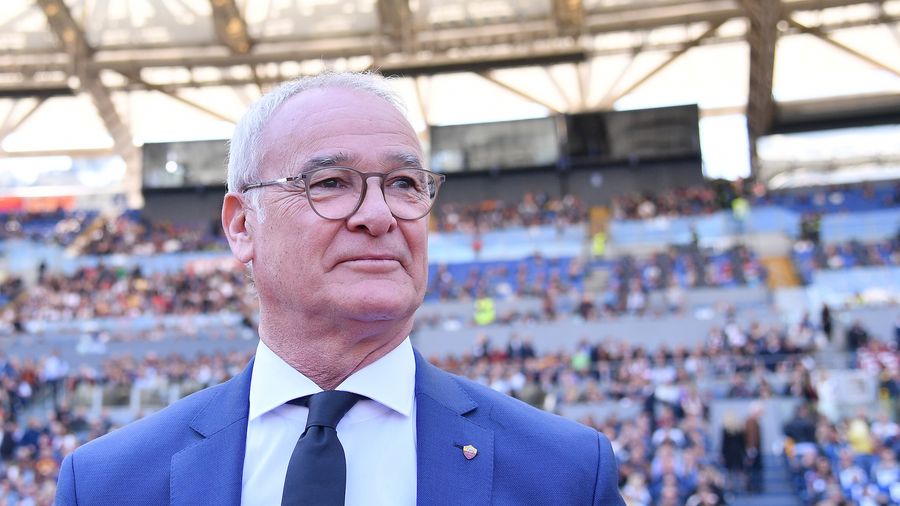Claudio Ranieri’s decision to decline the Italy national team coaching role marks a significant turning point, both for the Azzurri and for the veteran manager’s own career trajectory. The Italian Football Federation (FIGC), in their search for a leader to revitalize the national squad, extended an offer to Ranieri, a figure deeply entrenched in Italian football history. His credentials, including a Premier League title with Leicester City, a Coppa Italia with Fiorentina, and extensive experience managing top-tier clubs across Europe, made him a compelling candidate. However, Ranieri’s commitment to AS Roma, where he currently serves in a management role, ultimately took precedence. This decision underscores the complex considerations that influence career choices at the highest levels of football, where personal loyalties and ongoing projects can outweigh the allure of national duty.
Ranieri’s refusal to take the helm of the Azzurri comes at a crucial juncture for the Italian national team. Following their failure to qualify for the 2022 World Cup, a second consecutive absence from the global stage, the FIGC is under immense pressure to rebuild and restore the team’s former glory. The search for a new head coach is therefore of paramount importance, and Ranieri’s experience and tactical acumen would have been valuable assets in this endeavor. His deep understanding of Italian football, coupled with his international experience, could have provided the stability and direction needed to navigate the challenges ahead and lead the Azzurri back to prominence. His decision to remain at Roma, however, leaves the FIGC to continue their search, potentially exploring other experienced managers or considering younger, up-and-coming coaches with fresh perspectives.
The allure of managing one’s national team is undoubtedly a powerful draw for any coach. The opportunity to represent one’s country on the world stage, to guide a team through major tournaments, and to potentially etch one’s name into the annals of football history is a compelling proposition. However, Ranieri’s decision highlights that personal and professional factors can often outweigh these patriotic considerations. His current role at Roma, likely involving strategic planning, player development, and overall club management, appears to offer him a sense of stability and a long-term project that he is committed to seeing through. This suggests a desire for a different kind of challenge, one focused on building a club’s infrastructure and long-term success rather than the immediate pressures of international competition.
Ranieri’s extensive managerial career, spanning several decades and encompassing a wide range of clubs, has provided him with a wealth of experience and a nuanced understanding of the football landscape. From his early days in Italy with Cagliari and Napoli to his stints in Spain, England, and France, he has consistently demonstrated an ability to adapt to different footballing cultures and achieve success in various contexts. His most notable achievement, the unexpected Premier League triumph with Leicester City in 2016, solidified his place in football history and showcased his tactical ingenuity and ability to motivate players to achieve extraordinary feats. This experience, combined with his previous roles at prestigious clubs like Chelsea, Juventus, and Inter Milan, makes his continued involvement in football, even outside the national team framework, a valuable contribution to the sport.
The FIGC now faces the difficult task of identifying a suitable replacement for Roberto Mancini, the outgoing national team coach, and finding someone who can inspire the team and lead them back to international competitiveness. The pool of potential candidates will likely include both Italian and foreign managers, each with their own strengths and weaknesses. The FIGC will need to carefully consider factors such as tactical approach, experience, leadership qualities, and ability to connect with the players when making their decision. The pressure to appoint the right individual is immense, as the future of Italian football hangs in the balance. The team’s recent struggles have highlighted the need for a significant shift in direction, and the new coach will be tasked with implementing changes that can revitalize the squad and restore their place among the world’s elite.
Ranieri’s decision, while a setback for the FIGC, also underscores the complexities of football management and the personal considerations that often influence career choices. While the opportunity to lead the national team is a prestigious one, it also comes with immense pressure and scrutiny. Ranieri’s preference for his current role at Roma suggests a desire for a different kind of challenge, one where he can contribute to the long-term development of a club rather than navigating the volatile landscape of international football. As the FIGC continues its search for a new head coach, Ranieri’s decision serves as a reminder that personal fulfillment and professional goals can outweigh even the most enticing of national calls.


